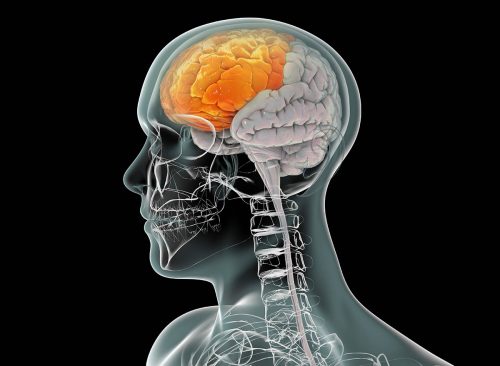8 Silent Signs You Have a Concussion, According to Dr. Gupta
Here is what you need to look out for.

The term “concussion” might not sound like a major health concern, but according to Julie Stamm, a clinical assistant professor at the University of Wisconsin-Madison Department of Kinesiology and author of the book The Brain on Youth Sports, it is. “I often use the term concussion because it’s just so commonly used in sport especially. But it is a traumatic brain injury, and it’s often classified as a mild traumatic brain injury — and even that feels like it minimizes the injury,” Stamm tells CNN Chief Medical Correspondent Dr. Sanjay Gupta on the podcast Chasing Life. On the podcast, Dr. Gupta and Stamm outline exactly what a concussion is and the silent signs to look out for that could save your life.

The US Centers for Disease Control and Prevention explains that a concussion happens after a “bump, blow, or jolt to the head” or “a hit to the body that causes the head and brain to move quickly back and forth.”

These sudden movements can cause “the brain to bounce around or twist in the skull,” “chemical changes in the brain” and/or the “stretching and damaging” of brain cells, explains the CDC.

The first sign you have suffered a concussion is confusion, explains Stamm. The CDC elaborates, explaining that someone might seem “dazed or stunned.”

The second symptom to look out for? Dizziness, Stamm says. The CDC adds that a person might move “clumsily.”

Blurry vision is another symptom of a concussion. The CDC says that some people might experience “double vision.”

Stamm adds that those who suffer a concussion complain of a sensitivity to light or noise,

Concussion patients sometimes experience nausea, says Stamm. The CDC elaborates, adding that vomiting can occur.

“Often overlooked symptoms include things like being overly emotional or not very emotional, apathetic,” says Stamm. The CDC describes it as “mood, behavior, or personality changes.”

Another often overlooked symptom is “sleep disturbances,” says Stamm, “either too much or too little. And it’s happening because of stretching of pathways in the brain and chemical changes that are happening because of those stretching of our axons, those pathways in the brain.”

Gupta adds that another sign is that a person can’t recall events prior to or after a hit or fall. “I got to say, sometimes the symptoms can be surprising. A few years ago, I have a neighbor here in town whose son I’ve known since he was a baby. You know, he played football in high school and the sharp kid was doing really well in school. And he came over to the house one day and I was talking to him, didn’t notice anything awry. And then all of a sudden there was this part of the conversation where he was clearly asking questions about things we had just talked about. His short term memory was dramatically affected,” he recalled.














